by Daniel ShaoEarlier, I spoke with Alex & Reylon, founders of Tangram, about creating a state of questioning with our project and opening up spaces between the East and West. In this second conversation, I began by asking about who are audiences are: are we imagining a Chinese or Western audience, or neither? Alex: It is less about where are audiences are from and more about their engagement with our mission: catalysing transnational imagination and celebrating the vitality of Chinese cultures. The idea of opening up a space you mention means we want to communicate new ideas of what Chinese identities and cultures encompass. We want our audiences to undertake a journey with us no matter where they start. This also applies to who we work with. We want to work with lots of people from different backgrounds and engage them in our mission as much as our audiences. This includes working with non-Chinese players and composers who may not have much experience in musical cross-cultural exchange to this extent but who are interested and genuinely excited by what we do and how we do it. Our upcoming commissions (to be announced soon!) reflect this and we can’t wait to see how they interact with and develop our work in creative ways. To me, that makes sense in terms of getting our message to as wide an audience as possible, and avoiding any sense of alienation. I’ve found that when discussing new political angles to do with race and culture, people respond better to a positive and approachable tone. That being said, does drafting people in to our message of positivity make us activists? Do we have to draw the line and say we are not an activist group, or is our explicitly Chinese music-making inherently political, and can our practice play a part in the cultivation of anti-racism? Reylon: The anti-racist drive is part of the DNA of what we do, but I hesitate to call it activism because there are many people on the ground doing hard work like getting legislation passed, having difficult conversations etc. I don’t want us to sound like we’re claiming to do that. But, we are using our medium in a special way where we’re embracing the social aspects, getting the audience to ask questions, and prompting reflection on what it means to be Chinese / British / American etc. We want to challenge what constitutes contemporary music, and get people to think beyond definitive categories. For me, if there’s one statement I want to advocate for through Tangram, it is that China and the West are not mutually exclusive, because this assumption is at the heart of a lot of geopolitical conflicts that we’re seeing, with the contest between China and the US as global superpowers. If that tension continues to grow unchecked, without genuine cultural exchange, without human-to-human communication channels, we are going to see very drastic consequences in terms of fraught public perceptions, trickling up into foreign policy decisions made by our leaders, which can lead to sustained antagonism. What I hope is that we can become a symbol for people of the truth that it is not as simple as us vs. them, and there is so much overlap. The lives of transnational Chinese people is a testament to the fact that there is a future that is much more peaceful, interconnected, and alive. So we definitely feel an idea of a utopian ‘call to imagination’, where we are trying to get people to think past destructive, racist, repetitive cultural narratives, that do have dire consequences, so we can imagine a more constructive future, that’s embedded in what we’re doing. In terms of anti-racism, a key point we want to emphasise is that music is an alternative language for communicating across cultural barriers, and we are leaning into that property of music. We said before in our mission statement that we are using the emotional languages of music to imagine alternative relationships between China and the West. It’s great that as an ensemble, we can do more than just make music; we think very critically about ourselves as artists, as well as the sources, effects, and potential resonances that our audiences might feel. This is maybe what sets us apart from other ensembles, who might be more concerned with just how they sound musically, aesthetically. We have been, and will continue to be, a socially engaged music movement. This got me thinking about the nature of apoliticism in music, particularly in light of recent public dialogues around race concerning the idea of existing with a supposedly apolitical status as a privilege, which some groups are not afforded the luxury of. Reylon’s phrase ‘call to imagination’ really gave me life and joy, offering vibrant possibilities of futurism, and a world where preconceived barriers are less present. That being said, we have to be aware of the barriers in the first place to challenge them at all.
Lastly, we discussed some of Tangram’s plans for the future! Alex and Reylon: We are excited to continue expanding our commissioning project and perform concerts at different venues in and around London and the UK, hopefully working towards a CD. We are also looking at developing our stage project Ye Xian into a more substantial piece, and have more exciting digital offerings coming up! We are also open to more commissions and collaborations with composers, or any artists who resonate with our mission. Please get in touch!
0 Comments
By Daniel Shao 7 June 2020 So, for this very first post for our blog Puzzle Pieces, I had the chance to catch up with our co-directors Alex and Reylon, on Tangram’s beginnings and mission. Alex and Reylon met in 2017 in Boston through a mutual friend while Alex was on a choir tour, and as Reylon was coming to the UK to do a master’s at SOAS, they decided to stay in touch and collaborate in London in 2018. To me, the transnational nature of their meeting is already interesting, as that is also at the core of what Tangram promote as a movement. Both shared thoughts about what it could mean to exist and make music at the intersection of Chinese and Western culture. At this time, Reylon was making new friends before his big move to London, but also he and Alex were both on the cusp of a new phase in their own musical trajectories. The same month that they met, Reylon had been speaking to Wu Man, a virtuoso Pipa player from the Silk Road ensemble (who Reylon also plays with), about how the Yangqin could work in contemporary music. She said to him he should do new things with the Yangqin as there’s not enough new music for the instrument, and he sits in a unique position as someone trained in the Chinese tradition but also having grown up in Western institutions. Reylon remembers her tone was almost one of frustration, as if she were decrying the fact that the instrument had been held back from reaching its full potential for too long. From our time studying Music at Oxford, Alex and I glimpsed the Eurocentric focus of the UK’s curriculums, something which holds particularly true in composition courses. Against this background, in the words of Unsuk Chin talking about her concerto for Sheng, when using non-western material ‘the dangers of musical exoticism seem [very] great’. If an Asian composer living in the West directly uses musical stimuli from their own culture, they can easily be stereotyped as just ‘doing the whole Eastern thing’, which is regarded in the Western classical music mindset as somehow less rich than the likes of Boulezian modernism. It is true that by pointing this out we admit that we are victims of Eurocentrism and reductive narratives in some way, but both Alex and Reylon are keen to emphasise Tangram as an example of thriving being a form of resistance through the celebration of Chinese cultures. By creating new trajectories and seeking to disrupt colonial narratives, we aim to spread positivity and place new possibility onto the global image of the Chinese subject. Alex’s first piece stimulated by his heritage was ‘Vanishing Point’ for erhu and symphony orchestra, premiered by the Shanghai Philharmonic in 2016, with Sun Yaoqi as soloist under conductor Liang Zhang, and it was from this point on that he realised how fruitful it could be to explore transnational culture and identity, and to question the supposed dichotomy of his London home and parental background of Hong Kong. For Reylon, a core idea of Tangram as a movement is that the West and China are not mutually exclusive entities, or even just entities (static, bounded) for that matter. We as artists are a testament to the existence of cultural cross-pollination, and are living examples of the multiplicity and diversity of the Chinese diaspora, facts which we aim to showcase consistently. Reylon’s musical upbringing was very different to that of Alex and myself; he studied the Yangqin and Chinese traditional music in San Francisco. Yet even this ‘traditional’ education bore elements which questioned any idea of nationalist musical absolutism; he studied lots of contemporary Chinese music which was influenced by Western art music, for example the beautiful Spirit of the Yellow Earth. The development of Tangram helped him to stop thinking in the binary way of ‘East vs. West’.
Reylon: It’s more about opening up the liminal space that we already inhabit, and trying to discover and create from where we are rather trying to fit ourselves into the Western Music tradition or the Chinese Music tradition. By creating something new and authentically ours, we’re naturally synthesising all of our influences, and this is an elegant way to transcend these boundaries. Alex agrees: Alex: It’s not so much a case of categories, but maybe more about opening up new spaces. There’s significance in the way we frame it, as the East meets West thing is dead and stale. We’re not necessarily looking to even create a new form, it is exploratory and organic. The concept of China does not have to mean anything narrow or singular, it can be all about heterogeneity and plurality, and there being loads of different ways in which ‘Chineseness’ can manifest.” Especially in recent times, Chinese identity has often been flattened into a two-dimensional idea, which is then easier to stereotype in a negative way, affecting common perception i.e. #Chinavirus. But Reylon has also been counteracting this with a hashtag project of his own, #ChineseViralBlank on instagram, which aims to showcase the broad and diverse reality of Chinese people and artists. For him: Reylon: A big part of Tangram is challenging those stereotypes and creating a safe space where we can explore. Tangram is a safe space for all of these artists to be themselves and explore identities in our own way. We hope that each artist interprets our mission for themselves, exploring it through the prism of their own experience, embracing and accepting what they find. Self-acceptance is a wonderful part of the Tangram process, because we are embracing our whole selves as transnational Chinese individuals, not just asking people to categorise themselves into assimilated white Western creators or purely Chinese creators, we are embracing all of those aspects, which can be very freeing.” This concludes part 1 of the 'reflective interview' : stay tuned for part 2 in which we discuss how these ideas intersect with musical process, plans for the future, and more! |
Authors:A range of Tangram artists and collaborators. We aim to present interviews, reflections, and tidbits on existence in the global Chinese diaspora. Archives
August 2020
Categories
All
|
Proudly powered by Weebly

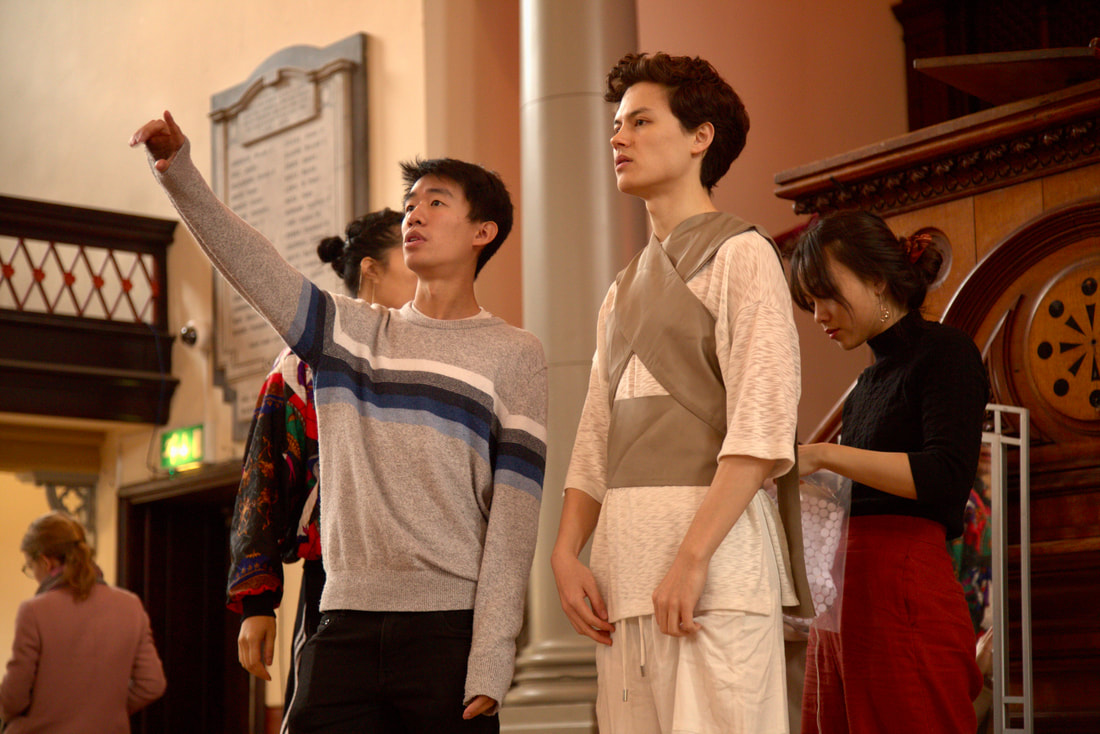
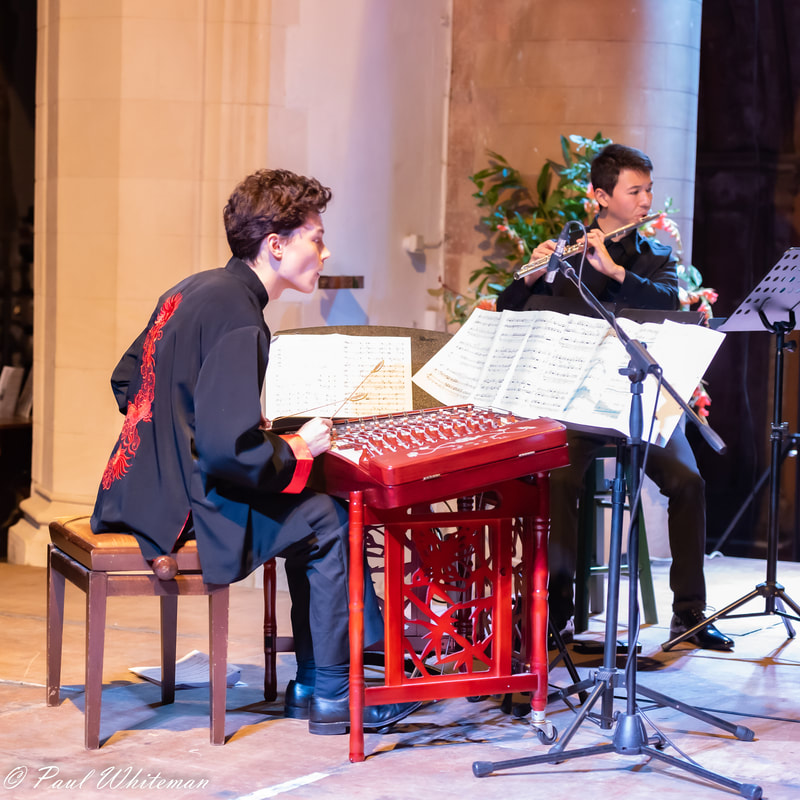
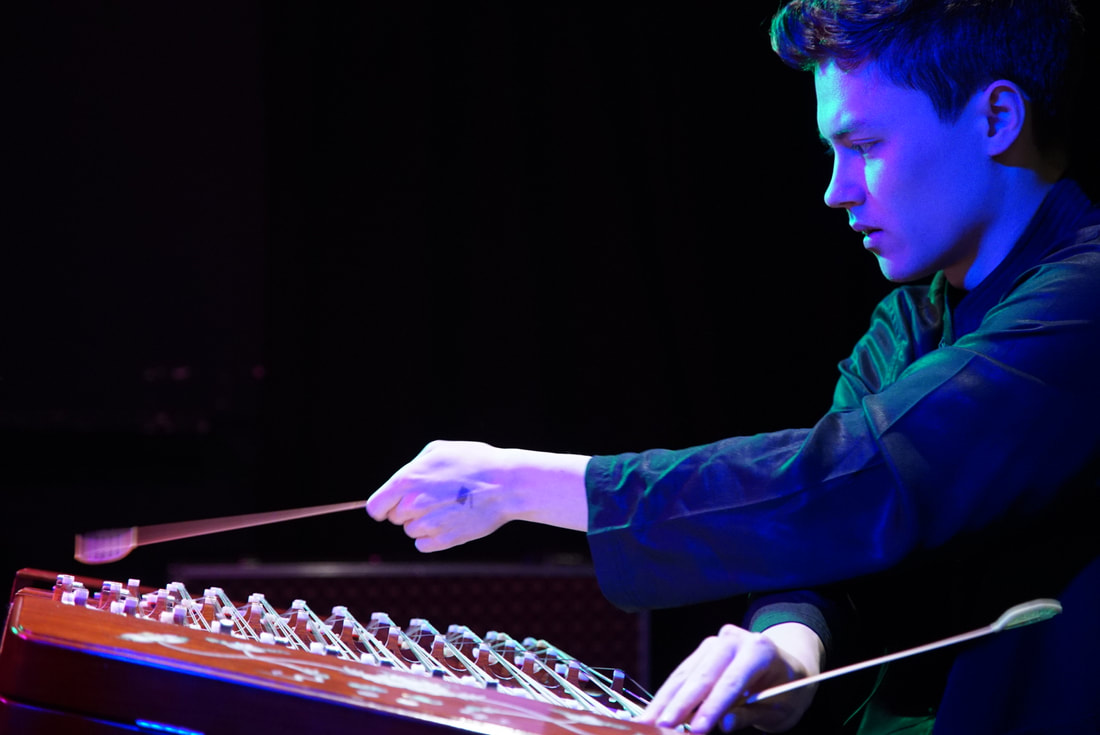
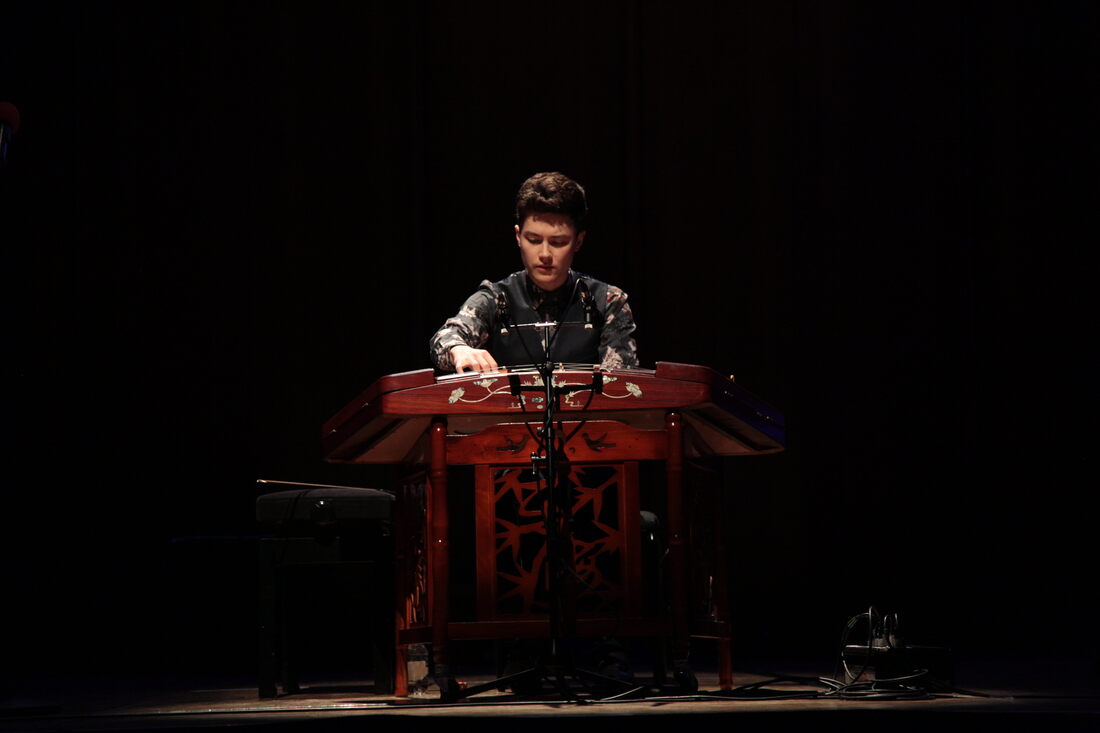
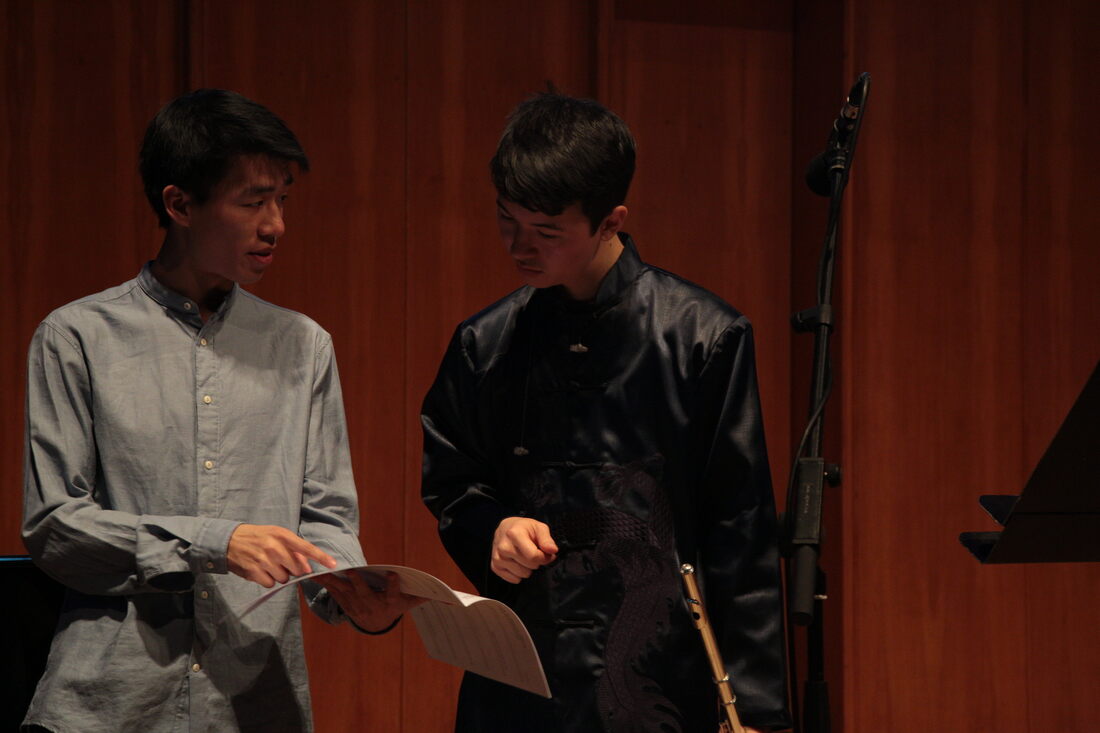
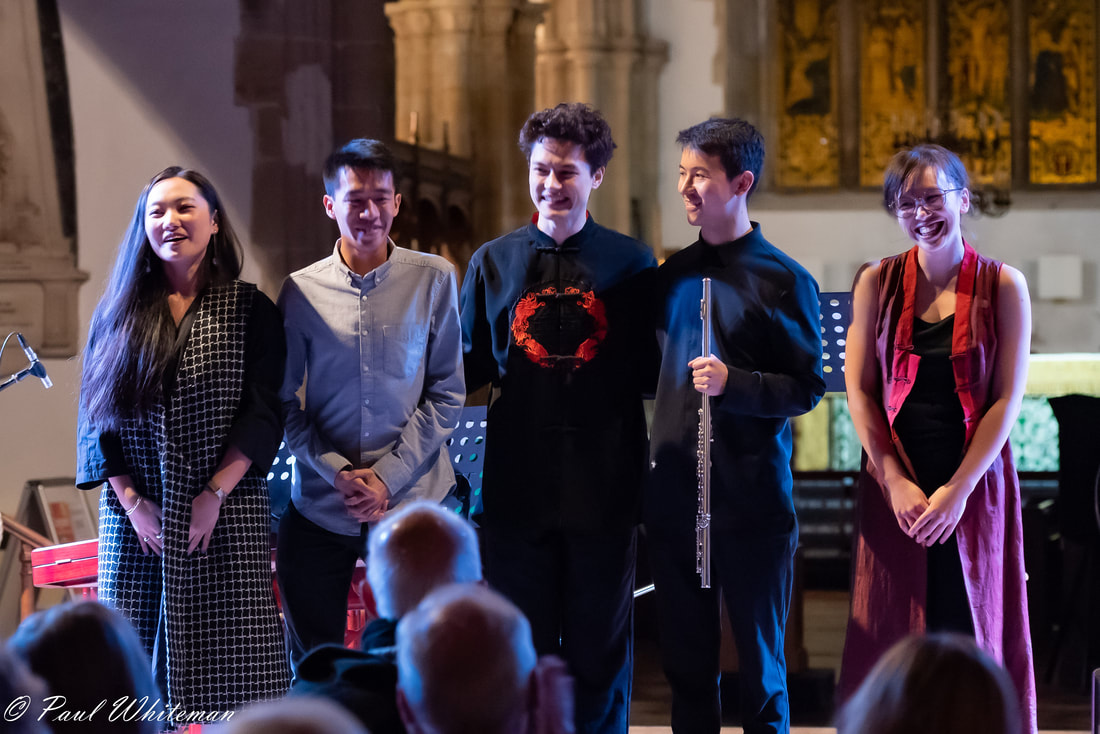
 RSS Feed
RSS Feed